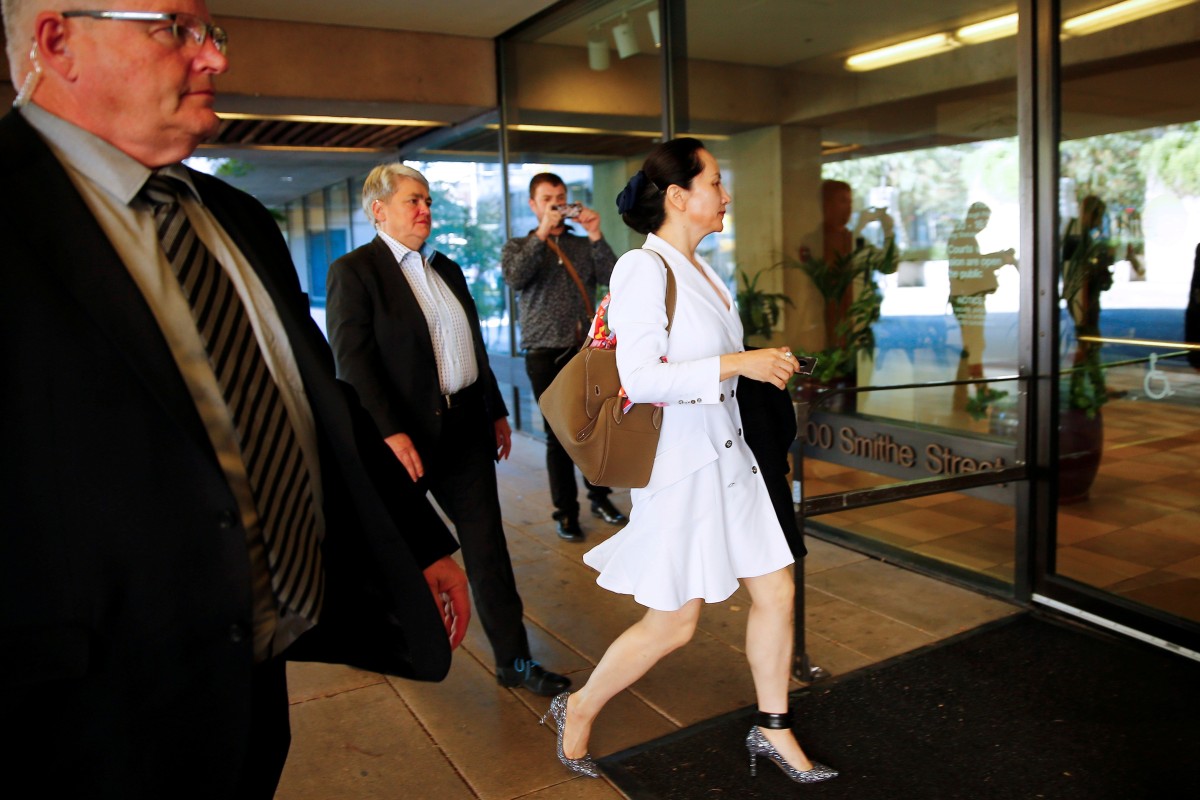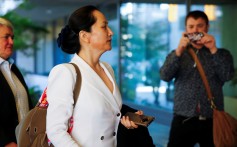A consortium of media, including the South China Morning Post, had applied to have video cameras at next week’s hearing in Vancouver
But a judge said a broadcast could affect impartiality of witnesses and jurors in a potential US trial
Ian Young in Vancouver Published:14 Jan, 2020

Huawei chief financial officer Meng Wanzhou arrives at court in Vancouver last September. Photo: Reuters
A Canadian judge has rejected a request by media organisations to televise
Huawei executive
Meng Wanzhou’s extradition hearing next week, saying that doing so could influence witnesses and jurors at any potential trial in the United States.
“Broadcasts would almost inevitably reach the community of the trial, given the high profile of this case in Canada and abroad, the political commentary relating to the case, and the sensationalised nature of some of the media coverage,” Justice Heather Holmes said in a ruling released late on Monday.
The formal case to determine whether to allow the US’ request to extradite Meng, Huawei’s chief financial officer – who was arrested in December 2018, on a flight stopover in Vancouver – will begin next Monday after months of preliminary hearings.
Meng is accused of defrauding HSBC by allegedly misleading it about Huawei’s relationship to a firm that was doing business in Iran, to reassure the bank that it was not in breach of US sanctions on Iran by doing business with the Chinese telecoms company.
Huawei CFO Meng Wanzhou returns to court
Holmes said members of a consortium of media who had applied to film the proceedings had so far reported “responsibly and professionally” but would not be able to control how others used the footage once it appeared online.
The South China Morning Post and 12 other media organisations, including CNN, The New York Times and The Wall Street Journal, had applied for video cameras to be allowed into the British Columbia Supreme Court in Vancouver.
The case has been at the centre of tensions between China and the West, amid a US-China trade war and debate about whether to let Huawei participate in high-speed 5G internet networks around the world.
Cameras in the courtroom would have represented a break from convention in British Columbia courts, although allowing them remains at the discretion of judges.
Summarising the consortium’s case, Holmes wrote in her judgment that there were “powerful factors” adding weight towards the granting of the request, given its “significant public interest and news coverage locally, nationally and internationally”.
Under the application, the recording would have been conducted by the Canadian Broadcasting Corporation on behalf of the consortium, with its release delayed by at least two hours.
Judge releases video of Huawei’s Meng Wanzhou being searched at airport before arrest
However, both Meng and the lawyers for the attorney general of Canada, representing US interests in the proceedings, were united in opposing the request.
“Ms Meng opposes any video recording or broadcast of any portion of the proceedings because of the adverse effects she submits they would have on the proper administration of justice and on the fairness of these proceedings and her trial in the US, should she be extradited,” Holmes wrote.
In their submission, Meng’s lawyers had also said that a broadcast could draw the attention of Donald Trump and risk him making a “threatening and intimidating” intervention in her case. Holmes did not address this in her ruling.
The Canadian government’s lawyers, meanwhile, said a broadcast risked “distorting the public perception of the proceedings and of disturbing the serenity of the court process”.
In her decision, Holmes said that “the key concern is Ms Meng’s right to a fair trial in the US, should she be extradited”.
“For portions of these extradition proceedings to be broadcast ... would in my view put that right at serious risk by potentially tainting trial witness testimony and the juror pool,” she said.
Holmes expressed particular concern about showing the double-criminality portion of the hearing, which will consider whether the charges against Meng would have represented a crime in Canada, had her alleged misconduct been committed there as well as in the US, the requesting state. Double criminality is a requirement for any suspect to be extradited from Canada.
China accuses detained Canadians of spying, following Huawei CFO extradition approval
Meng’s lawyers have argued that the US case is based on alleged breaches of American sanctions on Iran, which are not crimes in Canada. But the Canadian government’s lawyers say the underlying charge is one of fraud, rather than breaking US sanctions.
“A broadcast of counsels’ submissions without an explanation of their proper context could well lead an observer unfamiliar with extradition law to take counsel to be accepting the truth of the allegations, rather than assuming their truth for the purpose of the double-criminality hearing,” Holmes wrote.
A false perception that her own lawyers were acknowledging Meng’s guilt “could seriously damage Ms Meng’s right to a fair trial”, Holmes said.
“Similarly, broadcasting sound bites out of context would detract from the public understanding of the proceedings,” she said.

No comments:
Post a Comment